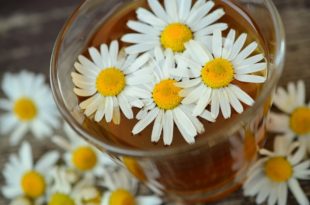Drink Your Way to Health and Happiness

For thousands of years, drinking tea has been a large part of the culture in the East. Asia has not only enjoyed the flavors and aromas of tea for all this time, but it has also reaped the various health benefits this beverage has to offer. More recently, scientific research in the West has brought forward the positive effects of tea on our body. Various studies have indicated that oolong, black and green teas have antitoxin, antibacterial, antiviral, anti-cariogenic and antifungal effects.
Tea Contains Antioxidants: The presence of free radicals in our body can cause damage to various organs. Oolong, black and green teas contain polyphenols, which help in neutralizing these free radicals. A study conducted by NCBI (National Center for Biotechnology Information) showed that tea can potentially increase the antioxidant capacity of blood plasma.
Tea has Antiaging Properties: Our skin is an organ, and can be damaged by the presence of free radicals in the body. Tea does not only contain the impact of these free radicals in accelerating the aging process, but can also repair damaged skin.
Cardiovascular Benefits: Tea is rich in flavonoid, which helps lower blood pressure and reduces the risk of cardiovascular disorders. According to a publication by Harvard Medical School, studies have shown that people who drink more than five cups of green tea a day are at 26% lower risk of heart attack and stroke.
Tea for Oral Health: The presence of polyphenols, flavonoids and tannins in tea has anti-cariogenic benefits. They help prevent plaque formation, lower the risk of cavities and fight tooth decay.
Cancer Prevention: Research suggests tea can stunt the growth of cancer cells. Studies are still underway to identify the benefits of tea for different types of cancer.
More recent studies have indicated that drinking tea can help lose weight, prevent bone loss, boost the immune system, improve digestion and even slow down the onset of Alzheimer’s.
All these benefits are from herbal blends. Traditional teas have less than 50% caffeine than in coffee. On the other hand, instant tea is made from highly processed leaves, may contain very small amounts of actual tea and are normally loaded with sugars or artificial sweeteners, according to an article in WebMD.
The best news is that tea is available online in a wealth of delicious flavors. Blended with fig, date, rose buds, cranberry, strawberry, guava, lemon, pear or even hibiscus and pumpkin, tea can be the perfect refreshing beverage for all occasions.

